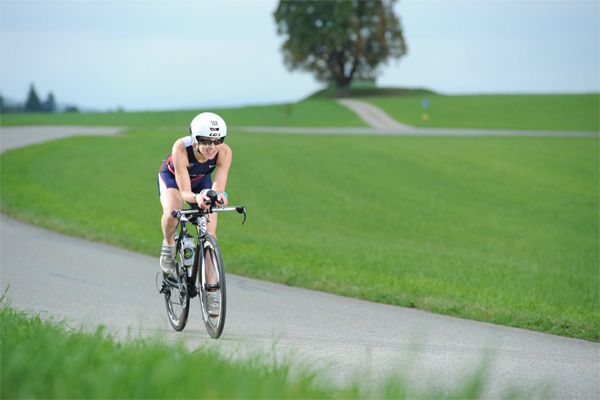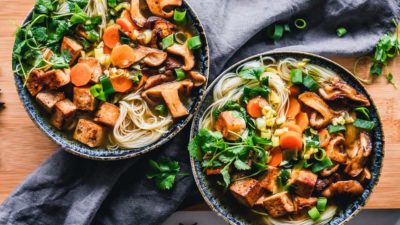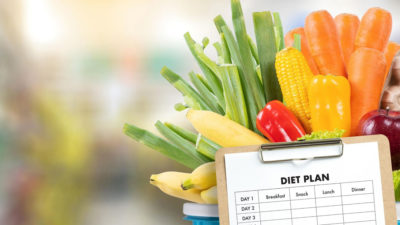The Vegan Edge

The world of sports nutrition is undergoing a revolution, bringing to light the many advantages a fully plant-based diet can offer. Vegan athletes all over the world are demonstrating just how amazing plants are as a sports fuel – and they have top-level results to prove it. Gone are the days of egg white omelettes and mountains of chicken meat!
According to studies examining the impact of diet on our health and athletic performance, a vegan diet not only offers a wealth of health benefits, it can also improve your performance, recovery and stamina (1, 2, 3, 4, 5, 6).
As for the health benefits, a vegan diet lowers your risk of heart disease, type 2 diabetes, some types of cancer, obesity and kidney disease (7, 8, 9, 10, 11, 12, 13, 14, 15, 16, 17, 18, 19).
For any kind of sport, a wholesome vegan diet is the best fuel – full of healthy proteins, complex carbohydrates, low in harmful fats and brimming with damage-limiting antioxidants and other health-boosting phytochemicals (20, 21, 22, 23, 24).
Research shows that plant-based diets increase athletes’ aerobic capacity, which leads to a greater time to exhaustion and to performance improvement (1, 2) – which is helpful for both strength and endurance training. Other studies have revealed that runners fuelled by plants have better-quality diets overall and increased stamina when compared to their meat-eating counterparts (3, 4).
All the complex carbohydrates from plants help to maintain glycogen (energy) stores in your muscles whilst also providing sustained energy release. At the same time, the lack of hard-to-digest animal protein makes you less tired. A healthy vegan diet is the best diet to help you improve your performance.
One of the important mechanisms of how plant-based diets make your body work better is by improving your blood flow and oxygen supply to the muscles. This happens because:
- Your blood vessels are healthier when you eat plant foods naturally low in saturated fats, and high in antioxidants and fibre. They contract and relax better and faster, regulating blood flow more precisely.
- Your blood flows more smoothly because it’s slightly less thick (viscous) than that of meat-eaters, leading to a better exchange of oxygen and nutrients between the blood and body tissues.
- The natural nitrates from vegetables slightly widen your blood vessels, meaning more blood supply to the performing muscles, improving the athletic endeavour. They also stimulate faster energetic recharging of your muscles and delay fatigue. Vegetable or beetroot juice nitrates are better than a supplement or other sources in achieving this advantage.
(1, 2, 3)
Wholesome vegan diets significantly lower the levels of inflammation in the body which is important for recovery (1). The micro damage that naturally happens in the muscles and other tissues when you’re physically active is being constantly repaired – but any damage within the body also triggers small inflammatory reactions. A plant-based diet, with its antioxidants, phenols, polyunsaturated fats and fibre, lowers these inflammatory reactions, limits damage and helps a faster recovery (2). Many meat-eating athletes take antioxidant supplements but when you go vegan, you don’t need any extra help!
Plant foods can also aid athletic recovery by facilitating better sleep, leading to improved muscle regeneration. Complex carbs are one of the cornerstones of plant-based diets and science shows that a carb-rich dinner makes you sleep better – you fall asleep faster and wake up less often in the night (3). Certain plant foods containing the amino acid tryptophan can also help to improve the quality of your sleep – pumpkin seeds, sunflower seeds, mushrooms, broccoli, peas, beans, soya beans (eg tofu and tempeh), buckwheat, oats, dates, peanuts and leafy green vegetables – and the result is a more efficient repair of your body tissues. Some animal products contain tryptophan too but less of it is absorbed. The carbohydrates and antioxidants in plant foods increase tryptophan’s absorption and transport in the body (3).
Plant foods are easier for us to digest than animal foods so your body works better when it runs on plants and has more energy to direct at nourishing and repairing muscles.
Plant wholefoods also help to regulate our blood sugar thanks to the complex carbs they contain, providing long-lasting energy. Research suggests that vegans have better insulin sensitivity than meat-eaters, which helps to prevent type 2 diabetes (1).

“The initial benefits I enjoyed as a vegan athlete were the boosts in energy, performance and recovery. I enjoy breaking the stereotype that athletes need to consume animal products to be successful. However I receive the most satisfaction by living my values as an athlete. I am doing the least amount of harm by respecting all living beings while also actively working to protect our environment. Every athlete should want to protect our natural resources so we can continue to do what we love.”
Laura Kline, multiple duathlon and triathlon champion, ultra runner and cyclist
No wonder so many athletes choose a vegan diet to be the best they can be! Want to know who they are? See the impressive list, including world champions and Olympians.
Want to know what and how to eat to improve your performance? See Nutrition Basics, Fuelling your Performance and Meal Plans.







